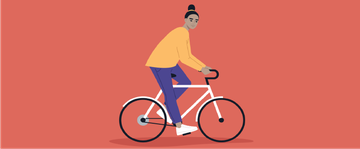Living well with HIV
If you’re living with HIV, you can live as happy, long and successful a life as your friends who don’t have HIV. But learning how to live well with HIV can mean you are dealing with more challenges than your friends and means looking after your physical and mental health. It means thinking about:
HIV treatment
Starting anti-retroviral therapy (ART) as early as possible helps keep the virus under control and prevent sharing an infection with others.
- Take your HIV treatment every day.
- If you’re worried about side effects or have any questions about your treatment, speak to your doctor.
- It’s your right to decide whether to take HIV treatment, but you should never stop taking your treatment without first discussing with your doctor. It can be very dangerous for your health.
U=U
When ART works well, it can lower your viral load to levels that tests can’t measure - this is called being ‘undetectable’. If you’re ‘undetectable’, you’re ‘untransmittable’. This means that although you have HIV, it is being kept under control by the treatment and you can no longer pass it on. To know how well your ART is working you need to have regular blood tests to determine your viral load.
Eating well and exercising
It is important to eat well to ensure your ART can work well. A good diet can help you maintain a healthy weight and give your body all the things it needs. Exercising can also help with keeping you fit and healthy and it's great for mental health too. Learn more about nutrition and exercise.
Mental health
Living with HIV can impact your mental health. Understanding your diagnosis, deciding who to share it with and dealing with stigma can bring a lot of worries and concerns. This can lead to stress and anxiety and in some cases depression. It is important you have people to talk to who can help you manage the different emotions and difficulties you might face. Learn more about Living with HIV and your mental health.
HIV and COVID-19
It’s important that everyone follows the prevention advice on COVID-19 and if you show symptoms of a COVID-19 infection you must get help. We still don’t know if people living with HIV who get COVID-19 become sicker than those who don’t have HIV. But we do know that people with weaker immune systems are less able to fight infections – including COVID-19. That’s why it’s so important to continue to take your ARTs to make sure your immune system is as strong as it can be. You must still go to medical appointments. Make sure you follow the COVID-19 prevention advice if you are travelling on public transport and going to the clinic.
In most countries people living with HIV are recommended to have the COVID-19 vaccine as soon as it is available.
Average Rating: ★ ★ ★ ★ ☆ (5 reviews)


